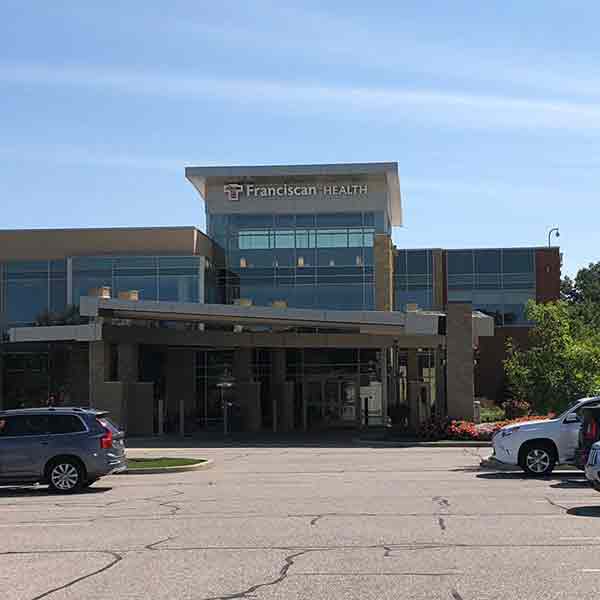Our Approach
At Franciscan Health, our concussion specialists use the latest diagnostic techniques and treatments to heal concussions and optimize brain health.
Concussion treatment
The most important treatment for a mild brain injury like a concussion is rest from all activities, including those at school or work. Activities that require a high level of focused attention should also be stopped.
Concussion symptoms will probably fade away as your brain heals. Pain medications should be used cautiously early on because they may mask worsening symptoms of a concussion.
Sometimes concussions require therapy to help your brain fully recovery. Therapy may include:
- Balance therapy
- Ocular (vision) training
- Cognitive (memory, concentration and thinking) training
- Cervical (neck) therapy
Most people make a full recovery after a concussion, often within a week. Recovery time, however, depends on the severity of the brain injury, the person's past health and how well he or she follows the treatment plan.
What is a concussion?
A concussion is a head injury that affects brain function. A violent blow to the head can cause the brain to bang against the inside of the skull, resulting in a concussion.
Adolescents are at higher risk for concussions because their brains are still developing. The majority of concussions are mild, and people usually recover fully with rest.
Concussion diagnosis
A concussion is diagnosed with a physical exam and by evaluating a person’s cognitive ability, mood and additional symptoms. A CT scan or MRI might be done to check for bleeding in the skull. Patients may also require overnight observation in the hospital.
A patient may undergo a baseline ImPact test. This test is a computer-based exam that measures attention span, working memory, sustained and selective attention time, response variability, nonverbal problem solving and reaction time.
Concussion causes
Sports injuries, motor vehicle accidents and falls are common causes of concussions. Any sport that involves contact can potentially cause a concussion.
A person can also suffer a concussion if the head and upper body are aggressively shaken. The intense motion causes the brain to move around inside the skull, which can lead to brain cell damage and chemical changes in the brain.
Concussion signs and symptoms
The most frequent symptom of a concussion is a headache. The symptoms of a concussion can be mild, but if a headache persists or worsens, it could mean there is bleeding in the skull. Symptoms can last for days, weeks or even longer, although most people start to heal within a week.
Common signs and symptoms of a concussion include:
- Balance problems
- Blurred vision
- Brief loss of consciousness
- Confusion
- Depression
- Difficulty concentrating
- Difficulty sleeping
- Dizziness
- Fatigue
- Headache
- Irritability
- Memory loss
- Nausea
- Ringing in the ears
- Seizures
- Sensitivity to light or sound
- Slurred speech
- Vomiting
Our Locations

Location Hours
| Monday: | M: | OPEN 24 HOURS |
| Tuesday: | T: | OPEN 24 HOURS |
| Wednesday: | W: | OPEN 24 HOURS |
| Thursday: | Th: | OPEN 24 HOURS |
| Friday: | F: | OPEN 24 HOURS |
| Saturday: | Sa: | OPEN 24 HOURS |
| Sunday: | Su: | OPEN 24 HOURS |
Appointments
Request An Appointment




